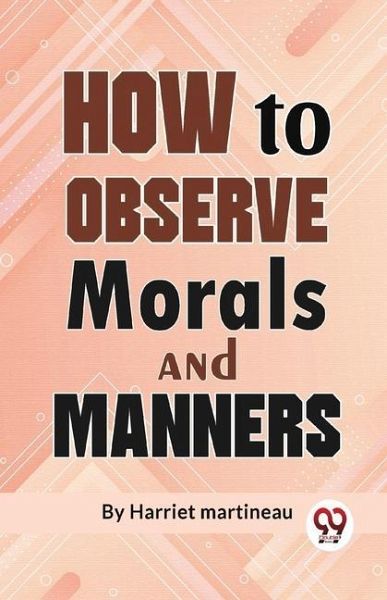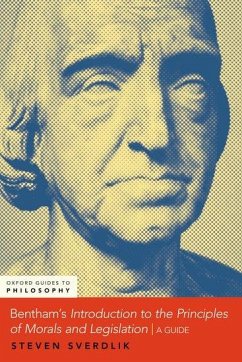
How To Observe Morals and Manners
Versandkostenfrei!
Versandfertig in über 4 Wochen
13,99 €
inkl. MwSt.
Weitere Ausgaben:

PAYBACK Punkte
7 °P sammeln!
"How To Observe" is a guidebook written by Harriet Martineau in 1859 that provides practical advice on how to observe and record information about the world around us. The book is divided into three sections: the first section focuses on the importance of observing, the second section provides guidance on how to observe, and the third section provides examples of how to record and use observations. In the first section, Martineau argues that observation is an essential tool for gaining knowledge and understanding of the world. She explains how observation can be used to gather information abou...
"How To Observe" is a guidebook written by Harriet Martineau in 1859 that provides practical advice on how to observe and record information about the world around us. The book is divided into three sections: the first section focuses on the importance of observing, the second section provides guidance on how to observe, and the third section provides examples of how to record and use observations. In the first section, Martineau argues that observation is an essential tool for gaining knowledge and understanding of the world. She explains how observation can be used to gather information about everything from natural phenomena to social customs and political institutions. The second section of the book provides specific instructions on how to observe, including how to make accurate measurements, how to record observations in a systematic manner, and how to test hypotheses. Martineau stresses the importance of objectivity and impartiality in observation, and provides practical advice on how to achieve these qualities. The third section of the book provides examples of how to record and use observations, including how to write scientific reports and how to use observations to inform policy decisions. Martineau provides numerous examples from her own observations, including studies of working-class life in England and the impact of American slavery on the economy. Overall, "How To Observe" is a valuable resource for anyone interested in learning how to make accurate and meaningful observations about the world. It provides practical advice on everything from selecting research topics to analyzing data, and emphasizes the importance of rigorous scientific methodology in observation.













